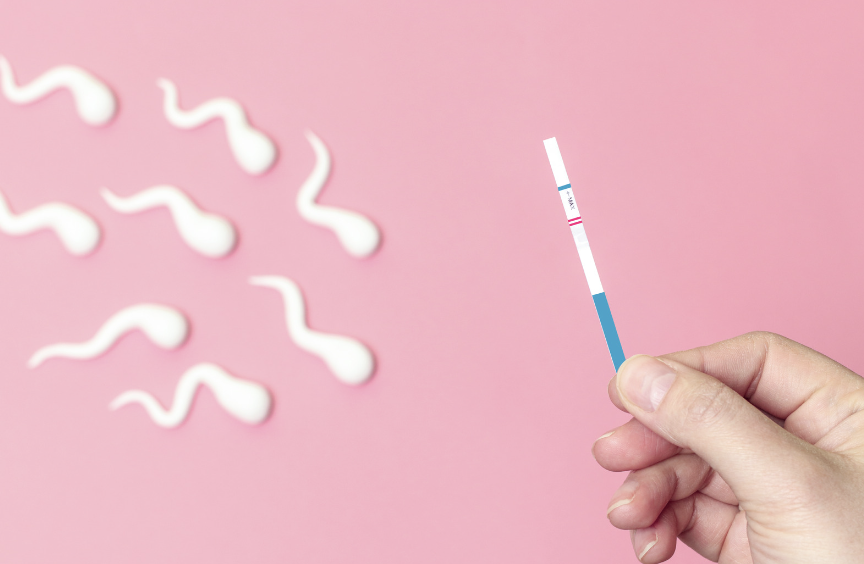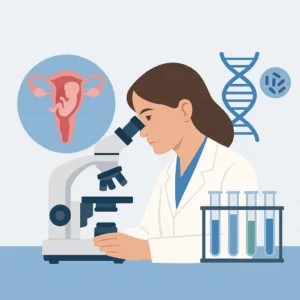Nearly all women know they need to see a doctor or midwife after becoming pregnant in order to make the right lifestyle changes for their baby’s health. But, it is just as important to start making those changes before you get pregnant. These steps will help you prepare you body and mind for conception, improve your chances of a successful conception, pregnancy and a healthy baby.
Here are some steps to take for a good start on your fertility journey.
Talk to your GP
If you are on any medication or have underlying health conditions, it’s important to speak to your GP about your intentions of getting pregnant. Your medications may need to be changed for a safe pregnancy. In addition, some underlying conditions must be stable prior to conceiving.
Get yourself tested
Having a screen of your general health, hormonal and nutritional profiles as well as your gut and vaginal health can help identify any factors that may interfere with a healthy successful conception and pregnancy. Even if you feel you are healthy this information can help you do plenty ahead of time to help you prepare.
Testing on it’s own without any support from experts can be misleading and not very constructive, so always make sure you have a consultation with an expert following your tests. Here are some points your health or fertility expert will discuss with you.
- Your current health and health history, and you family’s health history. Some health problems as well as fertility and pregnancy complications can be passed on so it’s important to identify risks. If there is a genetic disease running in the family, you may be referred to a genetic counsellor.
- Your test results and risk factors.
- Discuss any medication, supplementation and herbs you may be using. They can affect your fertility and the health of your unborn baby.
- Long term health problems such as asthma or diabetes. These factors should be stable before you get pregnant.
- Your weight and metabolism. Excess weight can increase risk of infertility and pregnancy complications.
Screen my health and fertility
Stop smoking, alcohol and drugs and limit caffeine intake
If you smoke, drink alcohol or use drugs you should stop before you try to conceive. These factors can:
- Make it harder to get pregnant
- Increase the chance of miscarriage
You may need help quitting smoking, alcohol or drugs. Talk to your doctor or midwife as there is lots of support available.
Alcohol has been shown to increase the time it takes for a woman to become pregnant, reduce sperm health in men and harm the growing foetus (even in small amounts). Drinking while you are pregnant has also been shown to cause long-term problems for your baby, such as intellectual disability, behavioural issues, learning disabilities as well as facial and heart defects.
Smoking is toxic to your eggs, sperm, pregnancy and unborn baby. It has been shown that children whose mothers smoke during pregnancy are at greater risk of health problems later in life.
Women who consume more than 2 cups of coffee or 5 cans of soda that contain caffeine may have harder time to get pregnant and a greater chance of miscarriage. It is advised to limit caffeine intake to a maximum of 2 cups a day when you are trying to conceive and once you are pregnant.
Tailor your nutrition to your needs
The food you eat is very literally what makes you. So it’s not surprising that your diet impacts your hormonal balance, the quality of your eggs, sperm quality, your endometrium quality, risk of pregnancy complications and the short and long term health of your future child.
A healthy body weight is a big factor when it comes to a fertility and pregnancy. Research has shown that women who are overweight or underweight are more likely to face infertility, have increased risk of miscarriage and pregnancy complications and have children who are more prone to metabolic conditions. It is therefore a good idea to try and reach a healthy weight for you prior to pregnancy.
A balanced diet is not the same for everyone, but some simple and general guidelines are:
- Reduce artificial sweeteners, processed food and empty calories
- Increase your protein intake
- Eat more fruits, vegetables and grains which will help your fertility and digestive health.
- Eat up to 3 servings of oily fish a week
Your body is unique and it’s not surprising that it would have its own unique nutritional needs to be healthy.
Understanding what your body needs and then tailoring your nutrition and lifestyle based on those needs can help give you the best chance in maximising your fertility and giving your future child the best kick start possible.
ScreenMe provides expert led tailored nutrition for your health and fertility. The ScreenMe eat-well plate shows you all the recommended foods and recipes your expert has put together for you.
Take the right supplements for you
It’s important to be meeting adequate micronutrient intake in order to allow healthy conception and healthy pregnancy.
Research has shown that tailored fertility supplementation can shorten the time to conception in couple’s compared to couple’s who did not supplement.
You should always choose supplements based on your body’s unique needs and circumstances. Having said that taking a prenatal with at least 400mcg of folate or folic acid is recommended for all women of reproductive age.
Folic acid reduces risk of birth defects, especially problems with the baby’s spine. So start taking folic acid prior to pregnancy
Avoid high doses of vitamin A, D, E and K. These vitamins can cause birth defects if you take more than the normal recommended amounts. Working with an expert to ensure you are supplementing right for you at each stage of your fertility journey can help optimise your health and fertility and avoid risks.
Instead of guessing what supplements your body needs at ScreenMe health experts and scientists tailor your supplements to your body’s needs.
Exercis
Exercising before you conceive can help optimise your health, hormonal balance and improve your fertility but it also helps your body deal with all the change that you will go through during pregnancy and labour.
Most women who already exercise can safely and successfully maintain their exercise program throughout their pregnancy.
If you are not currently exercising it’s recommended to start on an exercise program of 30 minutes of brisk exercise 5 days per week.
Talk to your doctor or midwife about what kind of exercise, and how much, is good for you.
Sleep, stress and rest
Although it may seem impossible to reduce stress on your fertility journey, it’s really important to not underestimate the impact of stress and lack of rest and sleep on your hormonal profile, mental health and future pregnancy. Getting plenty of rest and relaxation may hormonal balance which helps become pregnant.
- It’s important to get between 7-8 hours of sleep per night for your overall health and fertility.
- Try to dedicate some time to taking care of yourself and doing things that help you relax.
- If you struggle with lack of sleep or high levels of stress talk to your GP or midwife.







